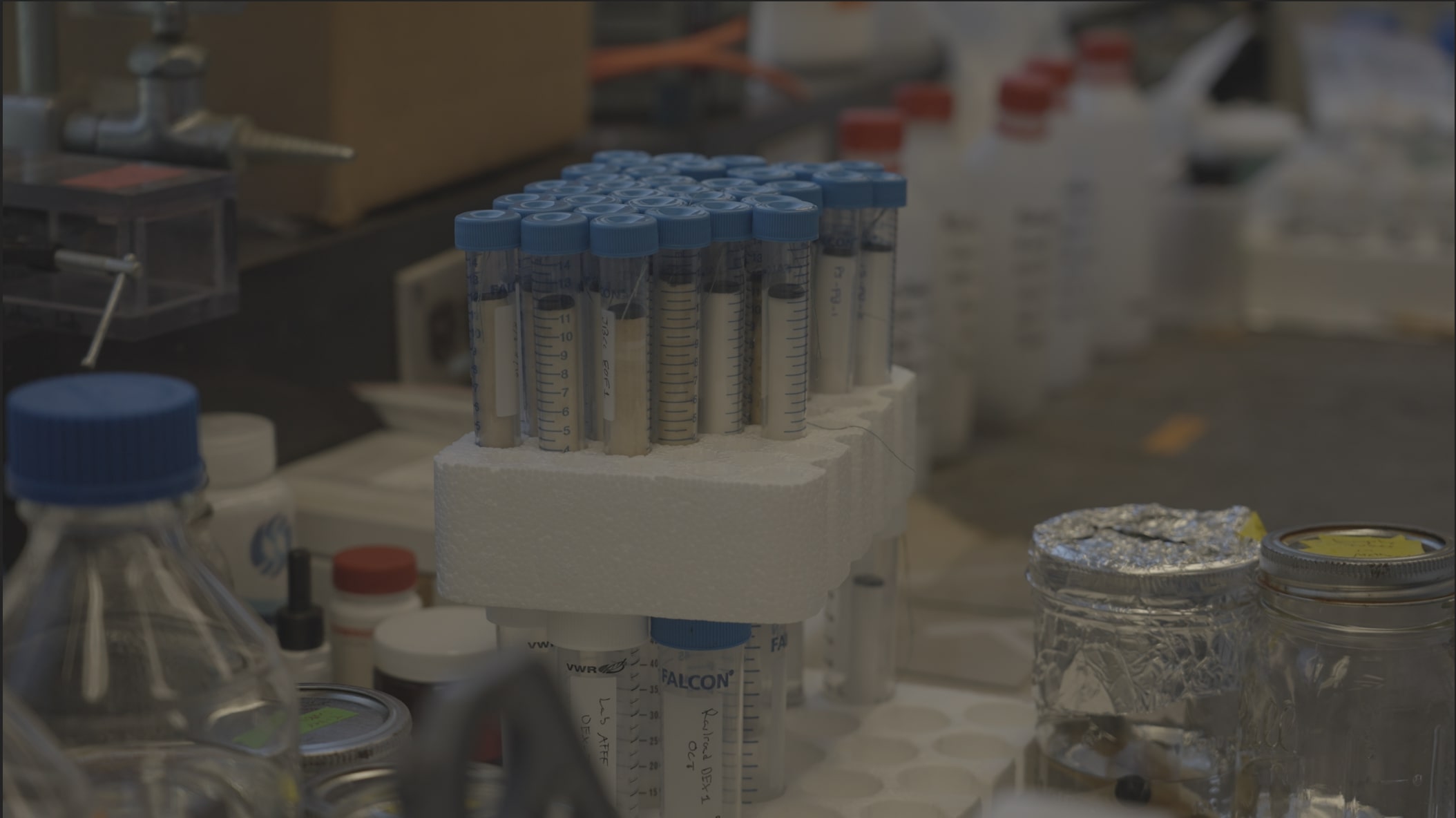URI’s school of oceanography is studying PFAS, the harmful chemical that leads to disease such as cancer. PHOTO CREDIT: Eddie Melfi | Staff Photographer
PFAS, or Per- and Polyfluorinated Substances, are a group of chemicals that have thousands to millions of molecules and can be found in all aspects of the world around us.
Rainer Lohmann, professor of Oceanography at the University of Rhode Island Graduate School of Oceanography (GSO) and director of the Superfund Research Center, Sources, STEEP (Sources, Transport, Exposure & Effects of PFAS), said that PFAS is found in many objects that many people would not even know about.
According to Lohmann, a majority of PFAS chemicals produce fluoropolymers, which is in teflon, which is used in frying pans.
“What all these chemicals have in common is that they are normally very good at repelling water,” Lohmann said. “So hence they’re used as textile carpet treatments or have been used and used on outdoor gear.”
PFAS, according to Lohmann, is used as an aqueous film form to extinguish fires. They’re heavily used in the military, fire training, industrial sites and they’ve also ended up in drinking water often and are a health risk.
He went on to talk about the different health issues that come along with exposure to these chemicals, such as elevated serum-cholesterol, ulcerative colitis, thyroid disease, kidney testicular liver and pancreatic cancers, liver enlargement and more.
The research and outreach programs working on PFAS were renewed by the government for five more years to continue their work, along with a grant of $8.1 million. Lohmann and Emily Diamond, an assistant professor in the department of communication studies and marine affairs, talked about the grant and how it allows STEEP to further their research of the PFAS chemicals.
“Research wise we’ll focus on a few areas of interest.” Lohmann said. “One is we’re particularly interested this round in better understanding the bio accumulation of PFAS in fish. So how they get all the way into fish that we might consume. The other is particular focus PFAS gets transferred through the breast milk to babies better understanding if there’s anything you can do about that.”
Diamond also mentioned that with this 5 year-renewal and grant money, STEEP is able to continue their work and expand their understanding of how PFAS act in the environment. STEEP is working on four research projects to help better understand PFAS in different areas; detection tools, childhood risk, metabolic effects and environmental fate and transport.
“It broadens and deepens our understanding of how PFAS acts in the environment and how they act in the human body and its impacts that they have,” Diamond said. “So, all of those projects are able to continue and we’re able to do more of the community outreach and training and research translation work that we started in the first project.”
According to Diamond, the grant is a partnership between URI, Harvard University and Silent Spring Institute and how it’s positioned these schools and groups to become leaders in PFAS studies. Diamond also said that, on a national level, PFAS is everywhere and they are trying to learn more about how it’s negatively affecting us.
“It’s also bringing a lot more funding and opportunities for researchers as well as students that you arrive to really dig deep into what these chemicals are and what are the impacts in the environment and the human body,” Diamond said. “So, as a nation, I think the NIHS has really recognized that it’s a priority for us to learn more about PFAS, try to prevent them from entering the environment as much as possible and also increase our understanding of how we can mitigate their negative effects.”
PFAS is very dangerous, and according to the STEEP webpage on the URI website, it is actually found that 98% of Americans have PFAS in their blood and there are more than 110 million Americans with contaminated drinking water supplies.
If you wish to learn more about PFAS, you can visit STEEP’s webpage on the URI website to learn more about these chemicals and the work that STEEP is doing to help prevent them from spreading in our environment.





